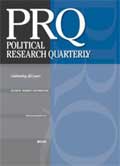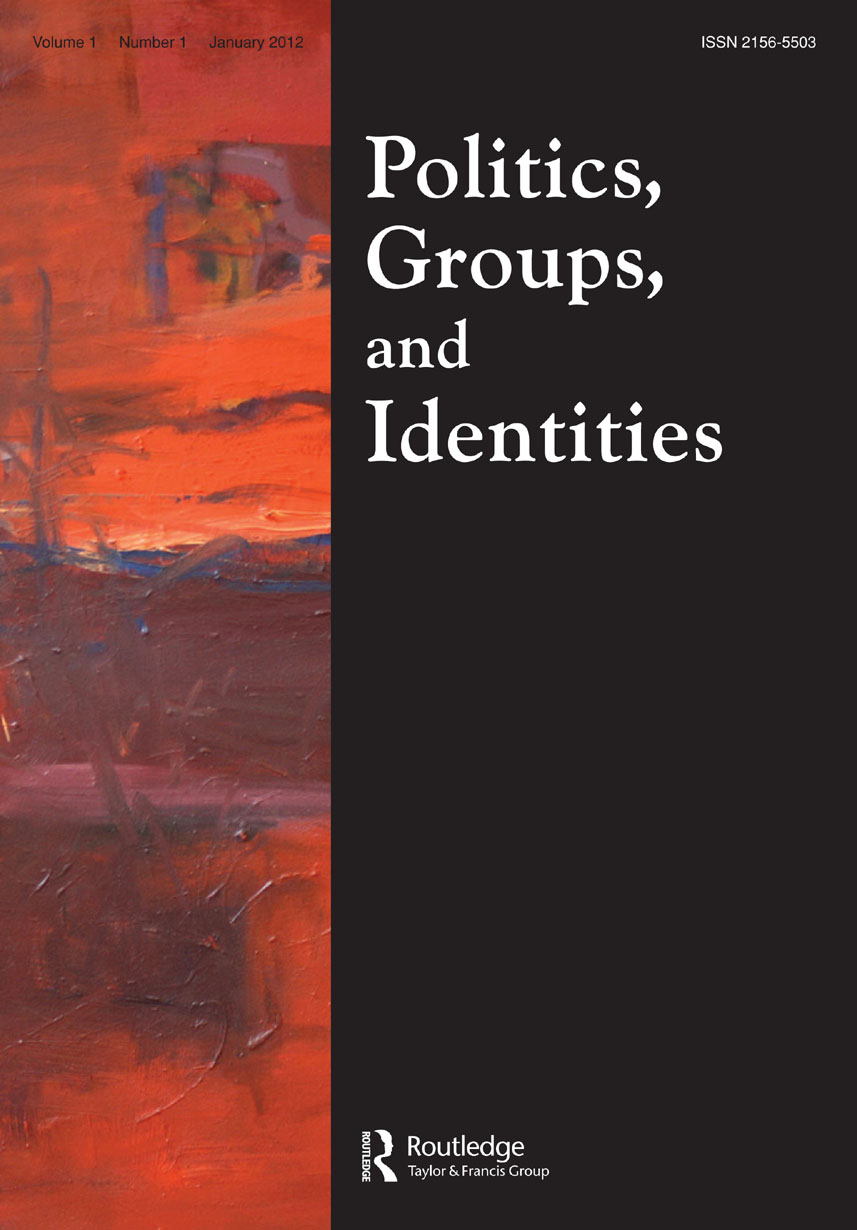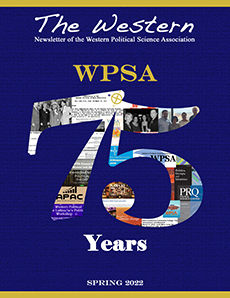THE CLIMATE CRISIS, ACADEMIC CONFERENCES, AND
THE WESTERN POLITICAL SCIENCE ASSOCIATION:
BACKGROUND AND REFLECTION
November 20, 2019
The Climate Crisis
It is a problem that no one wanted but that confronts us nonetheless. Greenhouse gas emissions, primarily carbon dioxide from the burning of fossil fuels, are heating the planet, imperiling human society and the natural world.
The scientific consensus, assembled by the United Nations’ Intergovernmental Panel on Climate Change (IPCC), holds that in the absence of carbon mitigation policies, world temperatures are likely to climb an average of between 4 and 5 degrees Celsius by the end of the century. This is likely to result in scorching temperatures over much of the planet, severe droughts and floods, plunging food production, widespread water shortages, mass migrations, vast extinction of plant and animal species, and the melting of ice caps that could cause a sea rise of nearly nine meters over the succeeding centuries. (Sea rise from climate change is slow to start but difficult to halt.) This will be an unrecognizably grim and different world, rendering illusory current plans and expectations for the future. The climate crisis has already taken a devastating toll on human communities and natural ecosystems, its harms falling disproportionately on the most vulnerable among us. The vast majority of greenhouse gas emissions have been and continue to be caused by the world’s most affluent communities and individuals, raising questions about their distinct responsibility to address the problem.
The IPCC has concluded that in order to avoid increasingly devastating climate impacts, which threaten to reverse developmental gains and dangerously destabilize global society, the world must limit the average temperature rise to 1.5 degrees Celsius above pre-industrial levels. It has further determined that in order to stay within the 1.5 degree limit, the world must lower annual net carbon emissions 45% by 2030, and bring them to zero by 2050. The average temperature has already increased by 1 degree Celsius. (Scientists also fear that a temperature increase of less than 2 degrees Celsius could trigger a feedback loop of continued warming even if human emissions are reduced.)
The necessary emissions reductions will require change at the individual, collective, and political levels. Like other professional associations, the Western Political Science Association is implicated in this challenge. How should we understand our contribution to the harm of the climate crisis? What can and should we do to desist from, diminish, or counteract this harm? These are difficult but inescapable questions, and they require our focused attention.
The purpose of this document is to encourage reflection on the responsibilities of academics generally and the WPSA in particular with respect to the climate crisis. It does not attempt to provide answers, but rather to offer some information that may assist discussion.
The Climate Impact of Professional Conferences and Academic Flying
WPSA members are concerned about climate change. When asked in a recent questionnaire, “On a scale of 1 to 5, how important would you say climate change issues are to you personally? (1 = not important, 5 = extremely important),” 67% of respondents answered “5,” while another 26% answered “4.” (The survey response rate was 10%.)
While the WPSA should explore different ways to lower its carbon impact (including “reduce, reuse, and recycle” measures at its annual conference), the primary issue is transportation – the carbon emissions currently produced when participants travel to and from the annual conference. For participants within driving distance, a decision to travel by train, bus, or carpool can lower their carbon impact. Using public transportation or ride-shares to and from airports also helps.
Air travel is the largest challenge, because the per person greenhouse gas emissions of flying are substantial. As of 2016, the world’s average person emitted 4.35 metric tons of carbon dioxide, from all activities, over an entire year. My personal share of emissions on a non-stop round-trip flight from Seattle to Los Angeles is 0.57 metric tons. On a non-stop round-trip flight from Seattle to Washington DC, it is 1.3 metric tons. If I take several flights a year, or fly longer distances, the numbers quickly add up. As is well known, individual contributions to greenhouse gas emissions vary widely within each country and across the world as a whole, and flying practices accentuate the pattern. A recent study by the Guardian showed that “taking a long-haul flight generates more carbon emissions than the average person in dozens of countries around the world produces in a whole year.” This is in a context when, to repeat, we need to halve our total carbon emissions by 2030 and reduce them to zero by 2050. The point of these observations is not to assign blame but to take stock of our situation and consider the choices before us.
Parke Wilde calculates that “it is safe to attribute 5% or more of human climate impact to aviation.” He bases this estimate on scientific studies that measure the emissions from burning jet fuels, the increased impact from releasing emissions at high altitudes, and additional emissions associated with the aviation industry. Carbon emissions from air travel would be many times higher were it not for the fact that the vast majority of the world’s inhabitants fly very little or not at all. Even in the United States, where air travel is more common, 55% of people took no plane trips in 2015, while 8% took seven or more. And carbon emissions from aviation are increasing rapidly. A May 2019 United Nations study estimated that the figure will triple between now and 2050. A September 2019 study by the International Council on Clean Transportation found that carbon emissions from air travel increased 32% in the past five years and that the May 2019 UN study understates the current rate of increase. Air travel is a major though under-appreciated source of academic contributions to greenhouse gas emissions. A recent study of the Vancouver campus of the University of British Columbia estimated that business-related flights for conference attendance and other purposes constituted between 63% and 73% of total campus emissions.
Academics can think about this issue in different ways. As individuals, we can consider reducing the number of plane trips we currently take for work or recreational purposes. We can ask if certain collaborative scholarly or professional activities can be accomplished without air travel. We can also think about the cumulative impact of our professional activities. A large academic conference may entail hundreds or thousands of round-trip flights. Is there a way to reduce the carbon impact of current academic practices?
What Can Be Done?
There is a growing movement to lower the carbon footprint of academia. A resource guide on “Flying Less in Academia” can be found here. One initiative is the “Flying Less” website, which hosts a blog, petition, and FAQ document. Opinion editorials increasingly appear that encourage academic associations, universities, and individuals to reduce their flying.
Academics are already taking action. Some departments have adopted “flying less” policies. One initiative calls for academic units to convert a significant portion of their guest lectures from fly-in to videoconference format. The International Society for the Study of Religion, Nature, and Culture organized online sessions for its most recent conference. The European Society for the Cognitive Sciences of Music has moved to a multi-hub conference format. In 2016, the University of California Santa Barbara hosted a completely online conference on “Climate Change: Views from the Humanities,” with presentations and dialogues still accessible on the website. The Society for Cultural Anthropology organized its most recent conference as a hybrid online and multi-hub gathering, with over 1,300 participants from over 40 countries.
The following are some of the proposals that have been offered for lowering the carbon impact of academic conferences resulting from air travel:
* Sponsor videoconference sessions interspersed through the year, providing intellectual opportunities that were previously limited to on-site conferences;
* Offer increased opportunities for online participation in existing conferences;
*Encourage a general practice of attending nearby conferences
accessible by public ground transportation (or, at most, short-distance
flights) rather than faraway conferences accessible only by air travel;
* Choose conference locations that are geographically
central (to reduce travel distance), near major population centers (to
facilitate overland travel), and at major airline hubs (to enable non-stop
flights);
* Hold multi-hub conferences, with simultaneous meetings in different locations, connected by the Internet;
*Hold "nearly carbon neutral" conferences that are hosted online;
* Hold conferences less than once a year;
*Adopt measures to encourage long-distance ground travel to conferences;
* Charter buses from select cities within one day’s driving distance;
* Arrange or encourage purchase of carbon offsets;
* Persuade colleges and universities to support the aforementioned measures, and to adopt their own “fly less” initiatives.
Some of these proposals could yield benefits beyond lowered carbon impact. They have the potential to improve accessibility, foster inclusion, broaden participation, lower individual costs, deepen intellectual exchange, and create new opportunities for young scholars. Some proposals may also pose drawbacks or challenges. We can weigh these factors appropriately.
Where does the Western Political Science Association fit into all of this? The question can be viewed from different angles. On the one hand, air travel remains a common mode of transportation to the annual WPSA conference, and we can usefully explore measures to reduce the flying that currently occurs. On the other hand, our status as a regional association places us in a favorable position in comparison to our national and international counterparts. Our members on average live closer to the site of our annual conference, and we can encourage more scholars in our region to choose our conference in preference to meetings located far away. (This will permit them to take shorter flights, or to replace flying with public ground transportation or short-distance driving.) A move to regionalize conference activity can be part of a broader plan to lower carbon emissions. The path forward may lie in a combination of regionalization and other de-carbonization strategies.
Some people may argue that because the climate crisis is a collective action problem, it is futile for individuals, universities, and professional associations to lower their own carbon footprints. However, history provides many examples of successful bottom-up efforts to solve collective action problems. It bears emphasizing that several city, state, and national governments have adopted significant carbon mitigation policies. Such action rests on the understanding that everyone should do their part, that responsible action by one actor can encourage responsible action by others, and that broad-based initiatives can strengthen the resolve of global institutions. Bottom-up action is an indispensable condition and element of the international cooperation needed to address the climate crisis. Many professional associations are now grappling with the question of their climate impact, and association practice can help overcome the individualizing effects of the collective action problem. Carbon mitigation measures by the WPSA will be noticed by its own membership, their students, their family and friends, their colleagues and institutions, other institutions and academic associations, and the public at large. For better or worse, the choices made by academic associations are visible to various public audiences, which will take cues from our action on the one hand or inaction on the other.
This is the time for professional associations including the Western Political Science Association to focus on appropriate strategies for lowering their carbon footprint. The choices made by the WPSA can send a positive signal to other professional associations and to a broader public wrestling with the same problem.
Jamie Mayerfeld
University of Washington
President, Western Political Science Association
Chair, WPSA Climate Action Committee
signed by the members of the WPSA Climate Action Committee:
Jessica Lavariega Monforti
California Lutheran University
Vice President and Program Chair, Western Political Science Association
Kellan Anfinson
Bard College
Chris Crews
California State University, Chico
Cara Daggett
Virginia Tech
Nives Dolsak
University of Washington
Elisabeth Ellis
University of Otago
Shane Gunster
Simon Fraser University
Cheryl Hall
University of South Florida
Matthew Leep
Western Governors University
John Meyer
Humboldt State University
Aseem Prakash
University of Washington
Sarah Shair-Rosenfield
Arizona State University


